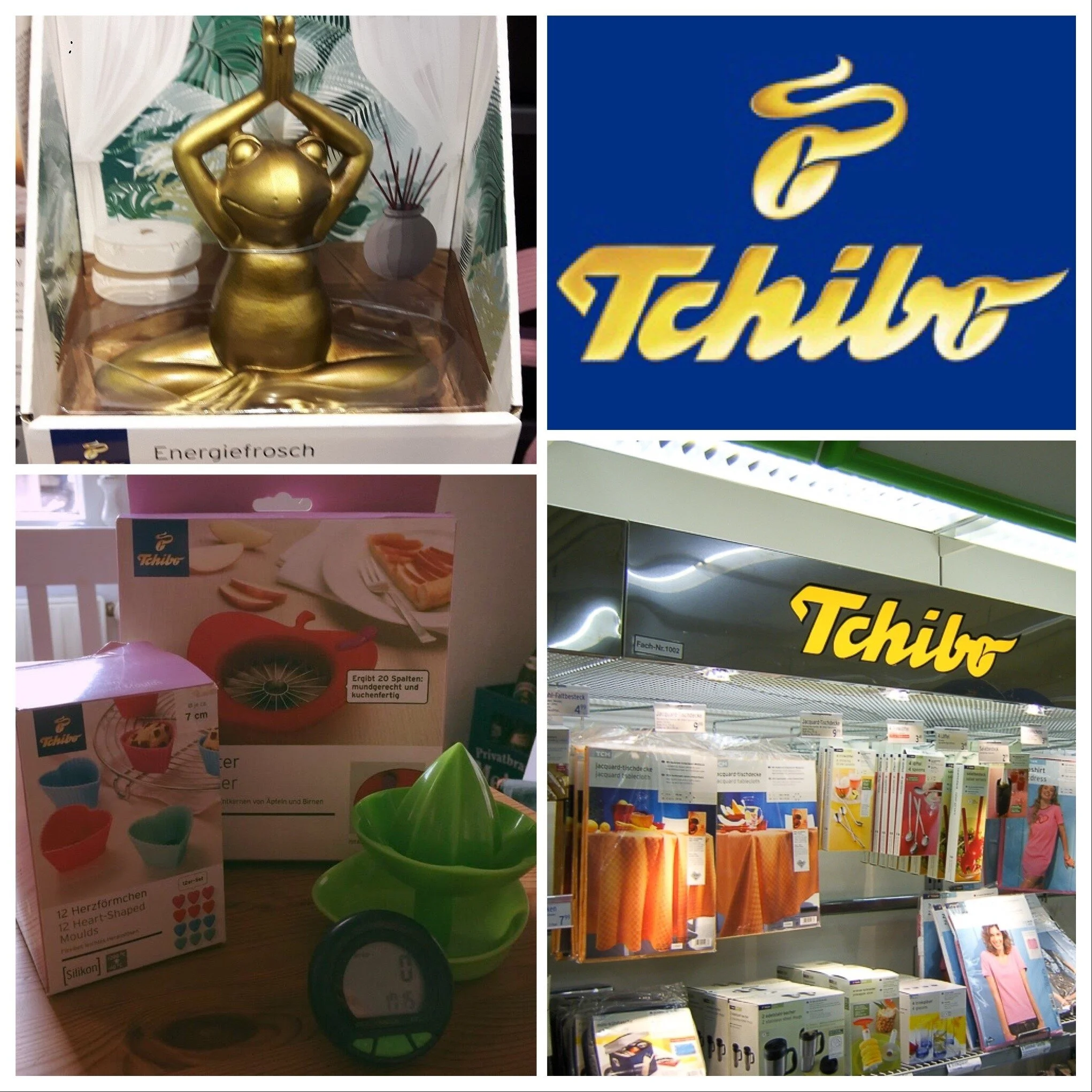The Curious World of Tchibo
If you’ve spent any time in Germany, Switzerland, Austria, the Netherlands, Poland, Hungary, Slovakia, the Czech Republic or Turkey, you will likely have come across a Tchibo store. The chain is one of Germany’s most successful exports, although it’s not immediately clear why. Tchibo is a high street coffee store, but its unique selling point seems to be its rotating selection of seasonal and often random products. In practice, the shop changes out its stock of fitness clothing, garden furniture, kitchen aids or consumer electronics on a weekly basis. Aside from coffee, customers can never guarantee what they might get. It’s a lucky dip, but as a business model. Customers may enter wanting one thing, but could easily leave with a full lycra bodysuit, a garden trowel, a last-minute holiday and some extra sturdy window locks.
Based in Hamburg, Tchibo’s distinctive name comes from combining the name of the founder, Carl Tchilinghiryan, with the German word for coffee bean, Bohnen. The company has grown to be a stalwart of the German high street, where throngs of confused consumers can be seen leaving stores with a phone contract in one hand and an ironing board under the other. Beginning in 1949, the first iteration of Tchibo was as a mail order company, which might go some way to explaining the randomness of the products. Walking into a store, it certainly feels like the physical manifestation of a mail order catalogue. In many ways, Tchibo has a lot in common with British high street curiosity Argos, where customers can browse a full catalogue of items before choosing what they want. Instead, Tchibo offers one page or perhaps a section of a catalogue per week. By rotating the stock on a weekly basis, it goads consumers into making rash purchases from a fear of missing out on a bargain.
Opinions on Tchibo tend to vary. There are some who will staunchly defend the myriad bizarre offerings, swearing blind that they fully intended on buying those LED candles, or the bottle opener that plays the opening bars of the Weiß-Blau Marsch. Even more will defend the quality of the products, which in my own experience can range from excellent to unusable. Generally, the smaller items work well, but expect complications with the larger items. A few years back my wife bought an exercise bike, ignoring my vocal protests. After building it I found that several vital parts were missing, and despite being sent two more replacement bikes, none seemed to feature the full complement of components. After the third attempt, I quietly boxed it up and requested a refund. My wife and I have never spoken of it since.
When I ask people if they like Tchibo, they stare into the middle distance with a look that says “yea, I do like Tchibo, but I don't know why”. Most are hard pressed to remember any items they bought there or if they still use them. They might have picked up a banana shaped box in which to carry a single banana to work or a mold for exact measurements of butter, but all are easily forgotten once the novelty has worn off.
Tchibo’s success seems to come from these easily forgotten products. The majority find a home in a kitchen cupboard, next to an equally neglected sandwich maker. This mixture of quickly forgotten novelty makes Tchibo incredibly useful for one specific purpose: it’s the go-to store for gifts for people you don’t know very well. Want to buy the boss, the neighbour, or the dentist a gift, but have no idea what they may want? No Problem. Tchibo has you covered. No one is ever disappointed with a Tchibo product, but don’t be surprised months later to discover your gift sitting in a garage or cupboard, still in its unopened box. Various housewarmings and birthdays have stocked our cupboards with a fine selection of Tchibo branded items. The picture above showcases the few that I could find. My wife and I don’t bake muffins, yet we have enough reusable cake molds to begin a small-scale bakery. I’ve never had a problem cutting apples, but at some point, we gained an apple shaped apple cutter. We may have used it once or twice, until we remembered knives existed. The pedometer was bought on a whim one January when my wife and I realised we had overdone the festive period. The green thing? It’s a juicer, but in true Tchibo fashion, there is no clear reason why the base is shaped like a leaf.
The best advice I can give a potential customer of Tchibo is try and buy something that you might actually use. Don't be tricked into buying that oversized gold meditating frog or an electronic dog barking device to scare burglars. My wife, a defender of Tchibo, is adamant that useful bargains can be found, pointing out I had at least one pair of Tchibo socks in my wardrobe. So, if I can say anything about shopping there I would say; get the coffee, buy the socks, leave behind any plans to purchase the jogging parachute. Yes, I said Jogging parchute.
Image Credit
Bild von Anna Sulencka auf Pixabay







